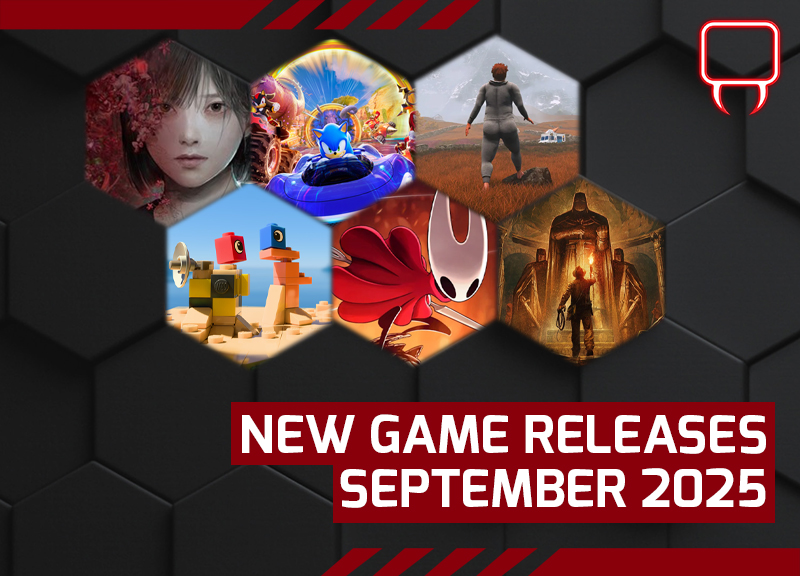World Children’s Day 2022: Using video games to give children’s voices a platform
We live in weird times. Every day there’s something new on the news. And everything is always changing. When we’re stuck hearing the same opinions all the time, it’s easy to forget there’s different ones. In video games, you often just need a different perspective to solve the same tricky puzzle you’ve been stuck on for hours.
What we’re trying to say is that video games might tell us more about listening to different voices than you might think. This week we celebrate World Children’s Day. Read on to learn more about the day, why we’re talking about it, and how gaming can help Children tell important stories.
What is World Children’s Day?
World Children’s Day is celebrated on the 20th November each year to promote international togetherness, awareness among children worldwide, and improving children’s welfare.
Established in 1954, since 1990, World Children’s Day also marks the anniversary of the date that the UN General Assembly adopted both the Declaration (1959) and the Convention (1989) on children’s rights.
Why Are We Talking About It?
Maybe you’ve been too busy getting lost in the gameplay videos for Hogwarts Legacy, daydreaming about all your adventures in the world of witches and wizards, but there’s a simple answer to this: because it’s important.
We’ve been empowering gamers since 1999 and that stretches beyond LED streaming microphones and world class charging solutions; it’s about caring for our community and creating safe spaces to talk about the things that matter, that might feel taboo, through what we love: video games.
It's not the first time we’ve touched on these kinds of topics either. If you’d like to educate yourself further, you can visit any of our blogs on:
- Gaming & Schizophrenia
- Gaming & Dementia
- Gaming & Grief
- World Mental Health Day 2022: Mental Health & Gaming
- Depression & Gaming
- Blue Monday – Gaming for Happiness
- How Gaming Can Tell Important Stories
Using Video Games to give children’s voices a platform
In case you’re still wondering why we’re talking about this year’s World Children’s Day, here’s a quick primer for you.
This year’s theme is ‘inclusion, for every child.’ From climate change, educationand mental health, to ending racism and discrimination, children and youngpeople are raising their voices on the issues that matter to their generationand calling for adults to create a better future. It’s more important than everthat the world listens to their ideas and demands.
Whilst we could reel off all the reasons video games are powerful tools for children’s education – like improving problem-solving, creative thinking, confidence, coordination, and memory – we thought we’d do something different.
We’ve always believed gaming can tell important stories. And with the need for us to give children a platform to raise their voices, and for their ideas to be listened to and acknowledged, we’ve decided to list some child characters from games who’ve got big ideas and helped shape their worlds.
Link – The Legend of Zelda
Slaying dragons, fighting spiders, and saving your home, the Land of Hyrule, from the prince of darkness sounds like a quest for Indiana jones. But in The Legend of Zelda, it’s the job of a 10-year-old.
Link, in all his adventures, has varied from 10-16, but has always had the same traits. He’s courageous, he’s determined, and he’s a glass half-full kid. No matter how difficult the puzzles he faces gets, or how dangerous his journey becomes, he pushes on.
Better yet, the franchise he’s led for decades has revolutionised gaming more than once. Which proves that children truly can change the world. Every kid has dragons to slay and adventures to go on, and Link is just one example of that.

Amicia & Hugo – A Plague Tale: Innocence (2020) and Requiem (2022)
Nothing says brother-sister bonding like fleeing the French inquisition and fighting off the black plaque during the Hundred Years’ War right? For 15-year old Amicia and 5-year oldHugo, their life changes suddenly as their family home’s raided and their father executed.
This survival horror certainly sees them grow up quickly. Hugo might not understand the danger they’re in, but he shows compassion, empathy, and innocence whilst Amicia displays intelligence, charisma, and bravery. Together, they team up to solve puzzles and sneak their way through the wilderness.
There are even moments where they discover alchemy and learn how to craft, showing that when the going gets tough, children will always find a way no matter what obstacle is in their way. And that’s a lesson we could all learn from: seeing things from different perspectives.

Clementine – The Walking Dead
Some characters serve to teach us all sorts of lessons about nurturing the talent of children. And The Walking Dead’s Clementine is an excellent example. Across four seasons of games, our choices help Clementine survive (and or thrive) the zombie-infested, post-apocalyptic world she's destined to grow up in.
Clementine is proof that nurture plays a big part in Children’s character development. For Clementine, the world around her and the actions of those closest to her deeply affect her own growth. Your decisions shape her understanding of trust and compassion, as well as life and death, gender and sexuality, and family dynamics.

Get involved - Share this article

Bonfire Night 2022: 4 More Gaming Firework Displays To Celebrate With
Don't fancy braving the cold for Bonfire Night 2022? Grab your sparklers, stock up on your glow sticks, and stick on your Nintendo, PlayStation or Xbox and get gaming with 4 more of Team Venom’s favourite gaming firework displays.
Read more
























